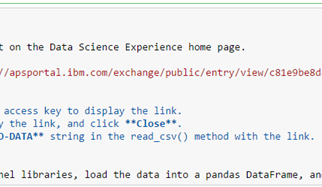The potential ethical dangers of believing that we are always doing evil
Before I start this article, I want to disclose up front that my relationship with hard left movements like socialism and anarchism is troubled. I at one point became embroiled in a rather childish dispute with a group of largely teenage Marxists who had very strange ideas like that moving to the Democratic People?s Republic of Korea would be a good plan, which earned me the infamous schoolyard nickname ?buttleg girl.? On the other hand, I studied with James Arnt Aune, the late rhetorical scholar who wrote Marxism & Rhetoric and in my view should be considered one of the most important socialist thinkers of the late 20th and early 21st century, and I share many of Jim?s views???views which admittedly later in his life were closer to Scandinavian social democracy than to ?socialism? as radicals usually use the term. So some people would say I?m very qualified to write this essay; others might, with some justification, claim that my bias is inherently neoliberal or capitalist. Too bad; this is the Internet and there are people who put explanations of how lizard people live inside the hollow Earth here, so I think there?s room for this viewpoint.
According to my reliable sources, the phrase ?there is no ethical consumption under capitalism” arises from the rich world of leftist Tumblr and Twitter discourse. Ironically, it is usually represented, much as the alt-right version of fascism is by Pepe the Frog, by the capitalist-created video game character Sonic the Hedgehog uttering the phrase. Or, is that really in fact ironic? There?s essentially two ways to read this meme:
- If you participate in commerce in a capitalist society you are complicit; you should try to reduce your consumption if not completely eliminate it.
- Capitalism is a massive system which forces us all to do bad things, and since life IS consumption, and we live under capitalism (unless we actually did move to North Korea) we have to do those bad things???and so we have a moral imperative to bring about changes to the system and ultimately an end to capitalism.
Since socialism is a collectivist movement, and given the fact that the meme spread on corporate owned platforms and used (admittedly bootleg) copyrighted imagery, I strongly suspect the original intent and the one most people who use the phrase mean is the second meaning. In other words, it?s not that we should feel bad for liking Sonic, or even buying his merchandise from Nintendo, but that we should recognize that we aren?t committing a good by consuming either. The meme has its origins in a feminist campaign led by Harry Potter star Emma Watson in which it was discovered that ?This is What a Feminist Looks Like? shirts, which according to critics were being held up by Watson and supporters as inherently progressive objects, were being produced in sweatshops with horrible conditions. I think read charitably the memetic statement makes an important point, one Dr. Aune often emphasized to me and his other graduate students who were prone to postmodern flights of fantasy: we can produce all the stories, symbols, and rhetoric we want but if it doesn?t translate into making life better by changing the system, we?re not doing something that deserves to be lauded. At the same time, we shouldn?t feel bad for buying the latest Mass Effect game or, you know, eating food that we pay for with money.
Here?s where the problem comes in: lately I?ve seen ?there?s no ethical consumption under capitalism? used in two ways which I would consider a perversion of most socialist and social democratic positions:
- My fave (anime/video game/novel/TV series) is problematic, but because it?s under capitalism, critiquing it and asking it to get better are things we don?t need to do because capitalism would still make it bad. Thus, feminist film Winter?s Bone carries exactly the same moral weight as Fifty Shades Darker.
- We are so helpless against capitalism that to reward ethical behaviors by corporations and other monied entities is just plain wrong; Target choosing to allow trans people explicitly to use the proper restrooms is just a capitalist ploy and we shouldn?t direct our business their way to show support.
In other words, ?there is no ethical consumption under capitalism? is a generally-true point which has cascaded into postmodern malaise, the same postmodern malaise that scholars like Aune and the still living, genius Professor Dana Cloud caution scholars against becoming trapped in.
I don?t believe in a moral imperative to boycott anything. Perhaps I?m wrong about this; perhaps I should cancel my Netflix subscription over the racism in Iron Fist and a number of other original features by the service. But I?m not going to do that, because I?m a storytelling animal, as rhetorician Kenneth Burke famously described all humans. I need stories to live???to make sense of my world. As an autistic, ADHD person with PTSD, I really need stories. So I?m going to consume them when Netflix and Newscorp and Warner Brothers and Disney crank them out. But, I agree with the axiom insofar as it says that if I were to find some particular liberation in Iron Fist, that doesn?t excuse its racism or make me watching it a support of any moral agenda besides me having fun.
But capitalism rules society, and the monolithic Culture Industry that Adorno & Horkheimer wrote about (somewhat racistly, if I might add) no longer exists, if it ever did. Adorno & Horkheimer argued in the immediate post-WWII era that capitalism was sustained and perpetuated by ideological replication of what contemporary Marxism thinkers call neoliberal ideology within cinema and (here?s the racist part) popular music like jazz. They really have a hate on for jazz as a tool of capitalism.
Today, there is a culture industry. It is exploitative. Hollywood is still a white man?s game, as evidenced by it being news that Black female director Ava Duvernay got a big budget to direct a film, and the fact that the Wachowski Sisters have had far, far less success than the Wachowski Brothers. Furthermore, independent channels of content distribution leech off of creators to make a profit from work that isn?t theirs. This happens when someone self publishes a book on Amazon Kindle and Amazon takes a cut when people could just as easily load a open source format ebook onto an e-reader instead. This happens when academics like myself are forced to sign over copyright and publication rights to companies that do nothing but print paper journals no one reads, and then post PDFs of our articles (editorial boards and peer reviewers are almost exclusively unpaid). It even happens with grassroots fundraising like IndieGoGo where people can donate to help a friend or a cause. Capitalism takes its cut.
But. BUT. I believe that despite this we need to recognize that it is possible to do good even in a society founded on evil. Of course, because of the way ideology works, I might just believe this because I?m trapped in a Matrix-like world of lies and deception and I want my petty entertainment without guilt. I think the many creators who would be homeless without the support of their patrons on the exploitative website Patreon, though, would say that them getting to live and make their art is an acceptable trade for a business taking some money they haven?t earned.
Ultimately, I think we consume ethically under capitalism all the time. I usually try to frame this in a positive light: paying for good things is good, paying for kinda bad things, as long as they?re not reprehensible, is fine as long as you personally get some real benefit. But I think the moment we say there isn?t any way to ethically create change within the capitalist system, we leave one of two options: we somehow escape or defeat capitalism (anyone up for an underwater city? That?d work well I bet!) or we simply give up and support bad, harmful things without question or criticism.
I have a final note and I?ll just admit up front that this is a ?Godwin.? Kenneth Burke, the aforementioned rhetorician, once wrote a famous essay about Mein Kampf that I?ll be lecturing to my students about today, in which he contended???years before the Final Solution had been confirmed as a real thing to those in Allies countries- that to believe in Hitler?s tenants and metaphors was to believe exterminating Jews makes sense. Now, I want to be very clear I?m not calling any of my fellow leftists Nazis. I am saying that, just as Burke could tell from Hitler?s writing what his intentions were towards the Jewish people, we need to be cautious of the conclusions our own ideological tenets lead us to???because complacency, nihilism, or uncontrolled violence are the outcomes of taking ?no ethical consumption? too literally.
Speaking of which, in order to consume at all under capitalism this week???like in terms of food and electricity and stuff???I kind of need some help,whichyou cansend bysupportingPayPal,acapitalistcorporationwhosefounderliterally wantsto becomeimmortalbydrinkingthebloodof theyouth. If you are so inclined to help a bankrupt transgender academic, donations are deeply appreciated. Many people need help; a great many much more than me. But, existing under capitalism, using any method to survive???even begging???becomes justified.
Most sincerely,
Conflicted Marxist Dr. Eleanor ?Bootleg Girl? Lockhart

